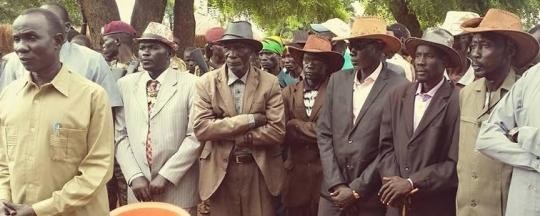Church leaders from Pochalla County of Greater Pibor Administrative Area are calling for peace and reconciliation in the area following the recent unrest in the county.
In a statement dated 20 September, the church leaders also expressed dismay over the humanitarian situation in Pochalla area.
"We regret these killings and pray for peace and tranquility to prevail among Pochalla Community," the clergy said in the statement.
"As we look deeply into the root causes of the conflict, we see power struggle between politicians in the counties, we also see divisions among our politicians with each determined to implement their own agendas regardless to the suffering of the masses on the ground."
"We believe in reconciliation and forgiveness among the people, thus we call upon our people in Pochalla Counties to restrain from revenge, bitterness and violence," the clergy further said. "This conflict needs our urgent intervention to prevent it from worsening farther. We need wisdom in this regards as people of Pochalla Counties," they warned.
The church leaders have been meeting with politicians, including members of parliament at both the national and state level to bring them together and facilitate a peace and reconciliation conference aiming at finding a solution to the conflict in Pochalla County.
Their initiative has gained some support from MPs of Pochalla in Juba, Bor and Pibor. “This is a good idea to bring people together and allow them find solution for their problems,” one MP said.
Fighting in Pochalla started over food distribution last June leaving two people dead. On July 14 fighting erupted again when the Anyuak King’s guards were allegedly ambushed inside Pochalla. The violence left five dead and fifteen others injured.
File photo: King of the Anyuak Akway Agada Akway (on left) with other Anyuak traditional leaders at a meeting in August




